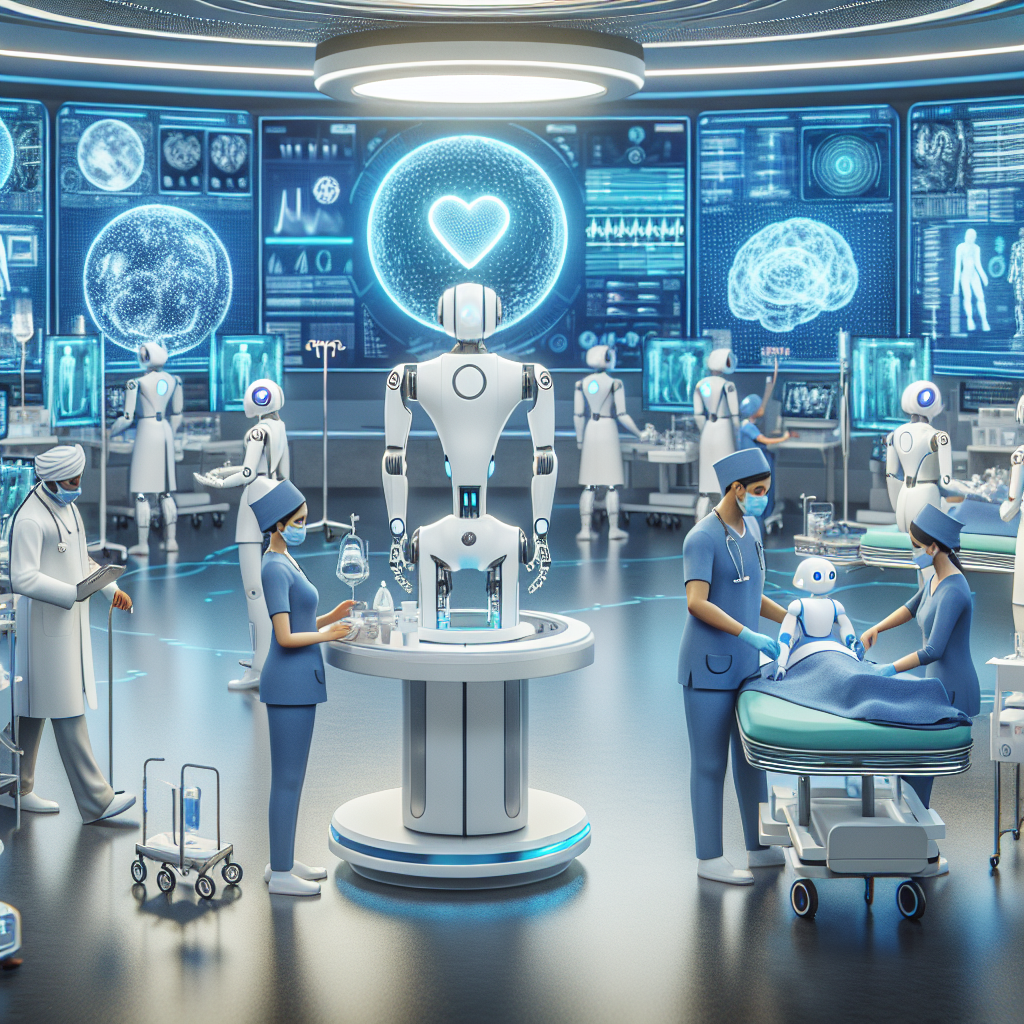Artificial General Intelligence (AGI) is a term that refers to a type of artificial intelligence that possesses the ability to understand, learn, and apply knowledge in a way that is similar to human intelligence. AGI has the potential to revolutionize a wide range of industries, including healthcare. In this article, we will explore how AGI is changing the landscape of medicine and shaping the future of healthcare.
The Rise of AI in Healthcare
Artificial intelligence has already made significant advancements in the field of healthcare. Machine learning algorithms have been used to analyze medical images, predict patient outcomes, and even assist in diagnosing diseases. These applications of AI have the potential to improve the efficiency and accuracy of medical practices, leading to better patient outcomes and reduced costs.
AGI takes this a step further by combining the capabilities of machine learning with the ability to reason, plan, and understand natural language. This allows AGI systems to perform a wider range of tasks and make more complex decisions than traditional AI systems.
One of the key advantages of AGI in healthcare is its ability to process and analyze large amounts of data at a rapid pace. This can be particularly useful in areas such as genomics, where massive amounts of genetic data need to be analyzed to identify potential causes of disease and develop personalized treatment plans.
AGI can also be used to assist in medical research, by analyzing research papers, clinical trials, and patient data to identify patterns and trends that may not be immediately apparent to human researchers. This can help to accelerate the pace of medical discovery and lead to the development of new treatments and therapies.
The Future of Healthcare with AGI
The potential applications of AGI in healthcare are vast. Here are some of the ways in which AGI is revolutionizing medicine and shaping the future of healthcare:
1. Personalized Medicine: AGI can analyze a patient’s genetic data, medical history, and lifestyle factors to develop personalized treatment plans. This can lead to more effective treatments with fewer side effects, as well as better outcomes for patients.
2. Disease Diagnosis: AGI can assist in diagnosing diseases by analyzing medical images, lab results, and patient symptoms. This can help to identify diseases at an earlier stage and improve patient outcomes.
3. Drug Discovery: AGI can analyze massive amounts of data to identify potential drug targets and predict the efficacy of new drugs. This can help to accelerate the drug discovery process and bring new treatments to market more quickly.
4. Remote Monitoring: AGI can be used to monitor patients remotely, by analyzing data from wearable devices and sensors to track vital signs and detect early signs of disease. This can help to improve patient outcomes and reduce the need for frequent hospital visits.
5. Healthcare Administration: AGI can assist in healthcare administration by automating tasks such as scheduling appointments, processing insurance claims, and managing electronic health records. This can help to reduce administrative costs and improve the efficiency of healthcare systems.
FAQs
Q: Can AGI replace human doctors and healthcare professionals?
A: While AGI has the potential to assist healthcare professionals in a wide range of tasks, it is unlikely to replace human doctors entirely. Healthcare is a complex and nuanced field that requires empathy, intuition, and human judgment, which AI systems may struggle to replicate.
Q: How can AGI ensure patient privacy and data security?
A: AGI systems must be designed with robust security measures in place to protect patient data and ensure patient privacy. This includes encryption, access controls, and regular security audits to identify and address potential vulnerabilities.
Q: What are the ethical implications of using AGI in healthcare?
A: The use of AGI in healthcare raises a number of ethical concerns, including issues of data privacy, consent, and bias. It is important for healthcare organizations to implement ethical guidelines and standards to ensure that AGI is used in a responsible and transparent manner.
In conclusion, AGI has the potential to revolutionize the field of healthcare in a wide range of ways, from personalized medicine to drug discovery to remote monitoring. While there are still challenges to overcome, such as ensuring patient privacy and addressing ethical concerns, the future of healthcare with AGI looks promising. By harnessing the power of AGI, we can improve patient outcomes, reduce costs, and accelerate the pace of medical innovation.

